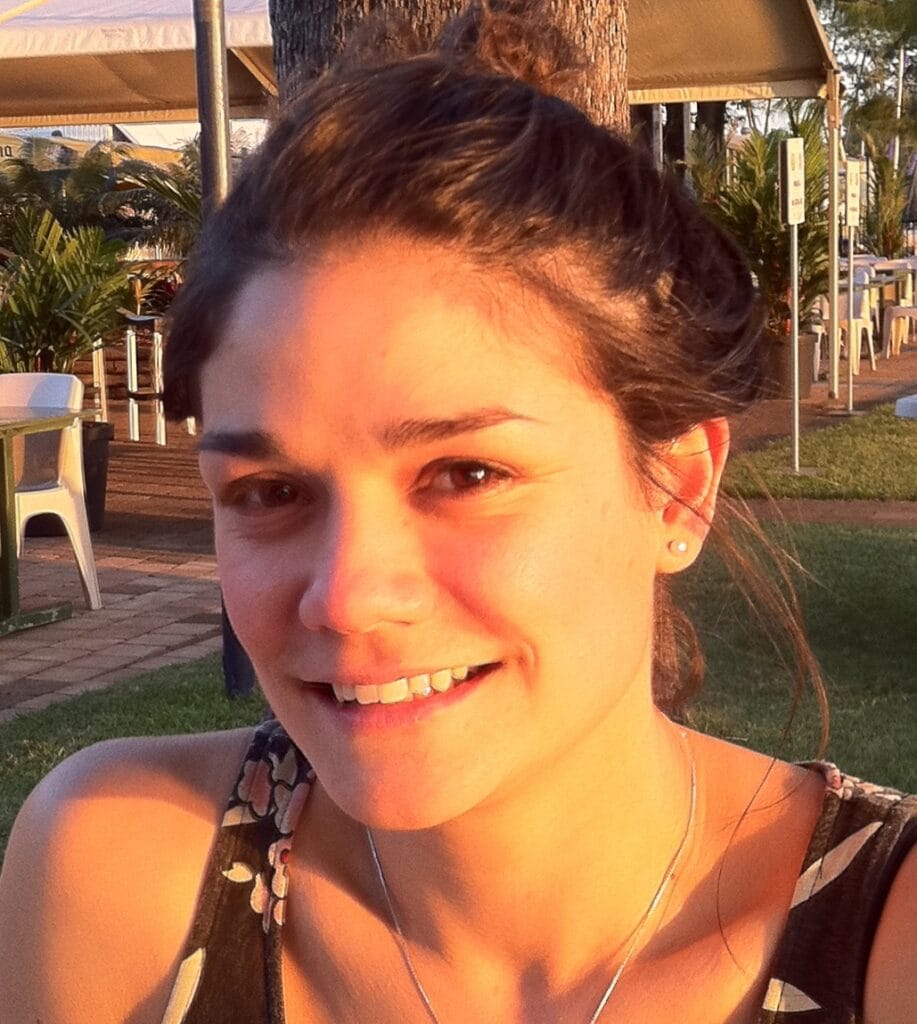Reduction in pain and disability with a graded sensorimotor retraining program in chronic back pain
Our team recently returned home from Darwin, where we all attended the Australian Pain Society’s Annual Scientific Meeting. We all presented some of our work up there and had a lot of fun while we were at it. I presented a poster, based on some work I did back in Western Australia, with Ben Wand. Lots of folks came up and showed interest in our work at the conference, so we thought we’d share it on BIM too…
Chronic non-specific low back pain (CNSLBP) is a common healthcare problem for which current interventions are proving to be only moderately effective [1]. There is growing evidence of extensive cortical reorganisation and perceptual disturbances which might contribute to the condition [2]. Our team developed a graded sensorimotor retraining program, based on sensory and motor models used previously in Complex Regional Pain Syndrome by Lorimer and others [3, 4], and then tested this on three participants with CNSLBP. The tasks in the programme were graded with regard to their complexity and their level of theoretical cortical engagement; we evaluated the effect of the program on pain intensity, disability, and the interference of pain on daily life. While we had some promising results, it’s important to remember that these data are preliminary; further study into this area with larger samples and more robust experimental designs is definitely warranted.
PDF: Managing chronic nonspecific low back pain poster
About Flavia
 Flavia Di Pietro is a PhD student in the Moseley Group investigating the development of Complex Regional Pain Syndrome (CRPS) after wrist fracture. Flavia’s PhD focuses on the early detection of brain changes in CRPS using fMRI. But get this – Flavia did Physiotherapy Honours degree at Notre Dame and completely cleaned up – Brian Edwards Memorial Award, Physio Research Foundation Award, Dean’s Award. Now, these things mean that she is not only ticking the academic boxes but all the other fluffy stuff too. No surprises that the NHMRC of Australia jumped to support her PhD. So she has come over from Perth where she has been working as a physiotherapist. All her achievements, however, pale in comparison to her celebrated status as the best Shoe Salesperson south of Milano, as evidenced by her taking out the 2006 and 2008 Diana Ferrari Golden Boot Award. Clearly, she did not write this bio.
Flavia Di Pietro is a PhD student in the Moseley Group investigating the development of Complex Regional Pain Syndrome (CRPS) after wrist fracture. Flavia’s PhD focuses on the early detection of brain changes in CRPS using fMRI. But get this – Flavia did Physiotherapy Honours degree at Notre Dame and completely cleaned up – Brian Edwards Memorial Award, Physio Research Foundation Award, Dean’s Award. Now, these things mean that she is not only ticking the academic boxes but all the other fluffy stuff too. No surprises that the NHMRC of Australia jumped to support her PhD. So she has come over from Perth where she has been working as a physiotherapist. All her achievements, however, pale in comparison to her celebrated status as the best Shoe Salesperson south of Milano, as evidenced by her taking out the 2006 and 2008 Diana Ferrari Golden Boot Award. Clearly, she did not write this bio.
* One of the awards in Flavia’s bio is fictitious.
 [1] van Tulder MW, Koes B, & Malmivaara A (2006). Outcome of non-invasive treatment modalities on back pain: an evidence-based review. European spine journal, 15 Suppl 1 PMID: 16320031
[1] van Tulder MW, Koes B, & Malmivaara A (2006). Outcome of non-invasive treatment modalities on back pain: an evidence-based review. European spine journal, 15 Suppl 1 PMID: 16320031
[2] Lotze M, & Moseley GL (2007). Role of distorted body image in pain. Current rheumatology reports, 9 (6), 488-96
[3] Moseley,GL, Zalucki,N, Weich,K (2008) Tactile discrimination, but not tactile stimulation alone, reduces chronic limb pain. Pain 137,3 600-608 [Abstract and slides]
[4] Moseley,GL (2004) Graded motor imagery is effective for long-standing complex regional pain syndrome – a randomised controlled trial. Pain 108(1-2): 192-198 [Abstract and Slides]



